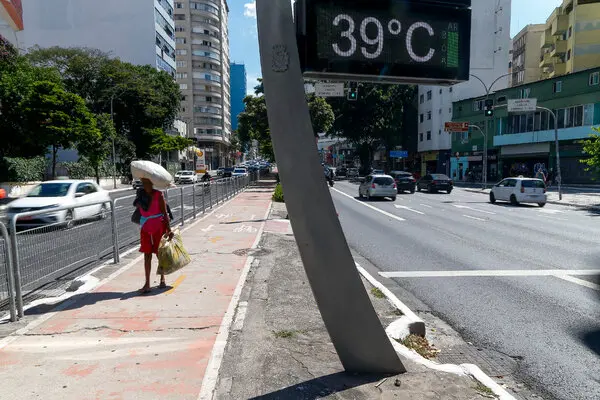A recent study published in the journal Science Advances reveals that as the planet warms due to climate change, these heat waves are slowing down and persisting for longer periods.
Last summer, as heat waves swept across vast swathes of the planet, communities endured days and even weeks of oppressive temperatures. A recent study published in the journal Science Advances reveals that as the planet warms due to climate change, these heat waves are slowing down and persisting for longer periods.
In collaboration with other researchers, the study, led by climate scientist Wei Zhang from Utah State University, discovered a significant trend in the behavior of heatwaves. Between 1979 and 2020, the speed at which heatwaves traverse, driven by air circulation, slowed by approximately 5 miles per day each decade. Additionally, the duration of these heat waves has increased by an average of four days.
Dr. Zhang emphasized the profound implications of these findings on public health and economic productivity. Prolonged exposure to extreme temperatures poses life-threatening risks, while workers’ efficiency dwindles during heat waves, impacting economic output. Moreover, extended periods of high temperatures desiccate soil and vegetation, endangering crops and elevating the likelihood of wildfires.
The study underscores the noticeable changes in heat wave behavior since the late 1990s, primarily attributed to human-induced climate change, although natural climate variability also plays a role.
Rachel White, an atmospheric scientist from the University of British Columbia, lauded the research, stating it fills a critical gap in understanding the dynamics of heat waves.
The research is groundbreaking as it tracks not only the spatial but also the temporal movement of heat waves, offering insights into their evolution over time. The team analyzed temperature data worldwide from 1979 to 2020, defining heat waves as contiguous areas exceeding 1 million square kilometers with temperatures at least at the 95th percentile of historical maximums, lasting for a minimum of three days.
The findings reveal a concerning trend: heatwaves are not only slowing down but also persisting for longer durations. Over the study period, heat waves decelerated by approximately 8 kilometers per day each decade and extended their lifespan, with those occurring between 2016 and 2020 lasting an average of 12 days, compared to just eight days from 1979 to 1983. Additionally, these heat waves are traveling farther, increasing their distance by about 226 kilometers per decade.
The study also highlights a surge in the frequency of heat waves, with an average of 98 occurring annually between 2016 and 2020, compared to 75 per year between 1979 and 1983. Regional variations exist, with heat waves lasting longer particularly in Eurasia and North America, and traveling farther, especially in South America.
To isolate the influence of climate change, researchers employed models to simulate temperatures under scenarios with and without human-induced greenhouse gas emissions. The results strongly support the notion that climate change is the primary driver behind the observed changes in heatwave behavior.
As communities grapple with the escalating threat of heatwaves, understanding their evolving nature becomes imperative for effective adaptation and mitigation strategies. This study underscores the urgency of addressing climate change to safeguard lives and livelihoods from the increasingly prolonged and intense heatwaves gripping our planet.
